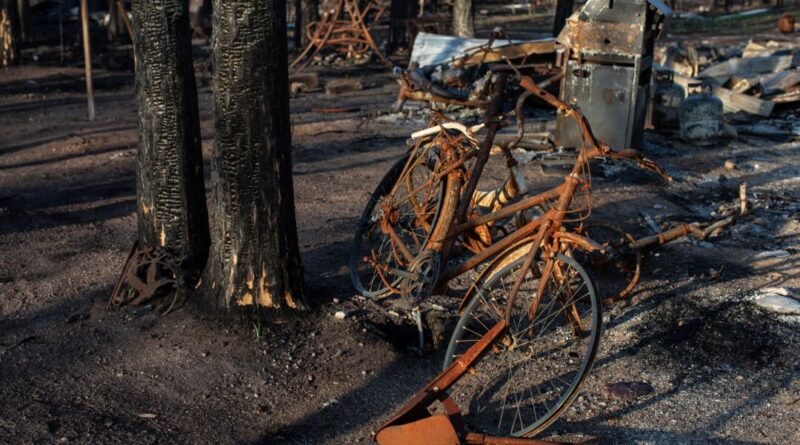Wildfire Season Approaching Peak Summer Months in Line with 10-Year Average
The remnants of Hurricane Beryl have brought flash floods and destruction to parts of the Maritimes, but federal officials say the storm has also reduced the risk of wildfires in parts of Eastern Canada, at least for now.
Overall this wildfire season is far less severe than the record-setting year in 2023, but the risk for new fires is still high in particular for B.C., Yukon and Northwest Territories.
The ongoing drought in Northwest Territories has intensified, and Environment Canada said things are drier than usual in Yukon.
“We are now into the heart of our fire season and we are tracking carefully a number of fires across the country and the expansion of general wildfire activity,” said Deryck Trehearn, director-general of Public Safety Canada’s government operations centre.
The Canadian Interagency Forest Fire Centre reports 577 active fires as of Thursday, including 402 out of control. Federal officials say there is a response to try and douse the flames for about half the active fires.
The rest are being monitored but are too far away from communities or infrastructure to warrant a response at this time.
Just shy of 1.3 million hectares have burned, which is close to the 10-year average for this time of year. By contrast, 1.3 million hectares had burned in B.C. alone by mid-July of last year. Nationally by mid-July nearly 10 million hectares had already burned in 2023.
There are currently about 150 active wildfires across B.C., a figure that’s holding steady from Thursday following an eruption of wildfire activity this week.
An update posted by the B.C. Wildfire Service said a recent heat wave with little or no rain in many areas has left forests extremely dry and susceptible to new fires.
That heat wave extends into Alberta and Saskatchewan. Another prolonged stretch of hot, dry weather is expected to blanket much of the Prairies starting next week, raising the fire risk in those areas.
A wildfire near a stretch of the Manitoba-Saskatchewan boundary has prompted evacuation warnings in some communities.
People in Flin Flon, Man., and in Creighton and Denare Beach in Saskatchewan have been told to prepare emergency bags and be ready to leave on short notice.
The fire near Creighton is not contained, and town officials say on social media that a fresh-air centre is being set up for vulnerable people because of smoke.
Denare Beach says on its website there are concerns that people in the village may lose highway access and experience power outages.
Creighton municipal officials are asking people to conserve water, saying sprinklers have been set up for some town infrastructure as a precaution.
In northern Alberta, about 1,700 people were forced out of their homes earlier this week. Nearly 1,000 people have left Little Red River Cree Nation and 700 are out of Garden River.
Officials say none of the provinces have asked for federal help from the Armed Forces so far this season, and Canada hasn’t had to ask other countries to help fight fires.
Mr. Trehearn said there have been significant fire seasons so far in the U.S. and Mexico.
Provinces have been sharing wildfire fighting resources, including firefighters, through the Canadian Interagency Forest Fire Centre.
The last three months have seen higher than normal temperatures across the country.






